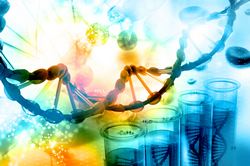Genetic markers in food and feed
Europeans are concerned about the impact of genetically modified organisms (GMOs), and therefore restrict development and use. Nevertheless, production abroad is increasing, meaning that Europe faces large quantities of imported food and feed products that potentially skirt European laws. Europe thus requires a method for detecting GMOs in food/feed products and for measuring the GMO components, so as to verify legislative compliance. The EU-funded GMOSENSOR (Monitoring genetically modified organisms in food and feed by innovative biosensor approaches) project provided such a method. Work yielded an easy, rapid and cheap solution involving genosensors, which read a target genome. The project designed the sensors using an exchange of knowledge research mode. The group evaluated two assay formats: direct and sandwich. The detection of transgenic markers involved electrochemical principles and surface plasmon resonance spectroscopy. Achieving the required level of accuracy required amplification strategies involving enzymes and gold nanoparticles. Researchers validated the results via comparison with conventional DNA-based techniques. The GMOSENSOR project's assessment method helps Europe to enforce its laws. The technology can also help determine the extent of the imported GMOs problem.
Keywords
Food and feed, genosensors, transgenic markers, GMOs, GMOSENSOR, biosensor







